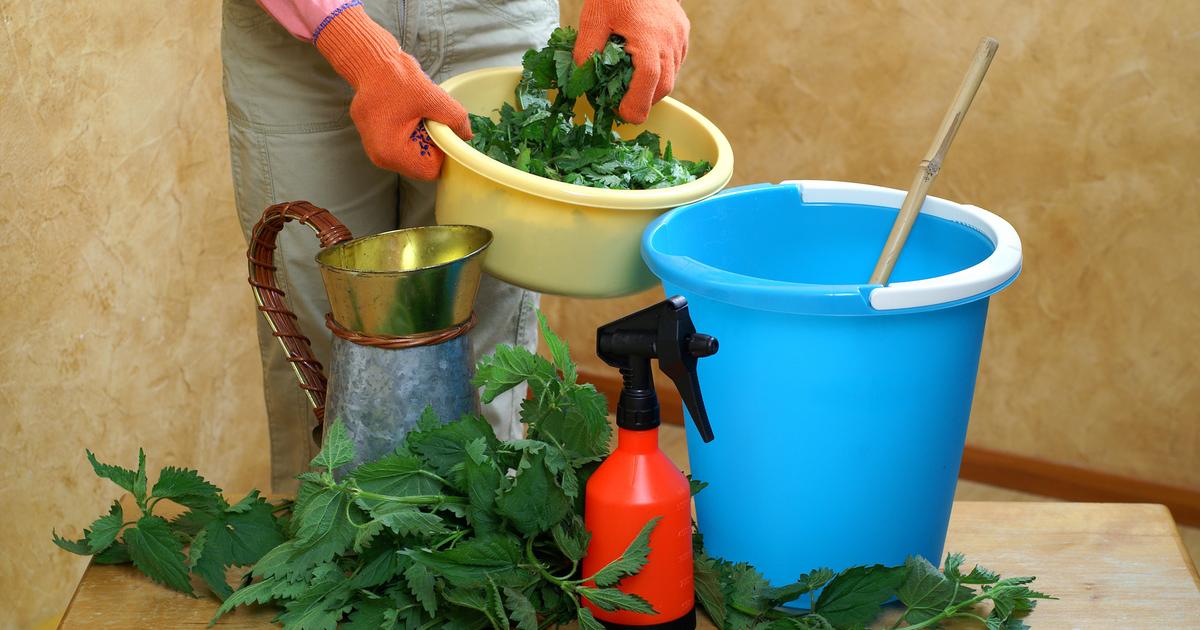The decoctions are useful for plants, shrubs, vegetable gardens, etc.
To discover
What to plant, sow or harvest in March?
What is a garden decoction?
Non-toxic for the environment and biodiversity, the decoction consists of extracting the active ingredients of a substance by the action of a liquid brought to the boil.
Did you know ?
You can also make a compost decoction.
Used in the garden, the decoctions help boost and improve plant growth.
But also to deal with possible diseases or fungi.
How to prepare a decoction?
Chopped plants, leaves of selected plants, woody parts or roots should be left to soak, covered, in cold fresh water for a day.
Preferably use rainwater.
Then, boil covered for 1/2 hour and leave to cool with the lid on, before filtering.
The decoction is then ready for use.
Did you know ?
The decoction can be kept for 2 days in the fridge.
With which plants to make decoctions for the garden?
The list of wild plants that can be used for a decoction is varied.
Here are the most frequently used:
Nettle: 100 g of roots for 1 liter of water
Garlic: 100 g of chopped cloves for 1 liter of water
Rhubarb: 100 g of fresh leaves for 1 liter of water
Tansy: 100 g of plant - leaves, stems, flowers - for 1 liter of water
Lavender
Horsetail: 100 g of fresh plants for 1 liter of water
Comfrey: 100 g of fresh plants for 1 liter of water
Elderberry: 100 g of fresh leaves for 1 liter of water
Walnut leaves
the willow
How to use a decoction in the garden?
The decoction can have a fertilizing, fungicidal (powdery mildew, blister, downy mildew, botrytis, rust), insecticidal and insect repellent role.
Spray this ecological treatment, pure or diluted.
Do it regularly, over several weeks, to see convincing results.
Against fungal diseases:
Horsetail decoction (diluted): on fruit trees, rose bushes or strawberries
Nettle decoction (diluted): fruit trees, rose bushes
Tansy decoction (pure): potatoes, tomatoes, rose bushes
Garlic decoction (pure): strawberries, peaches, roses
Willow decoction: fruit trees
Good to know
If you want to do a preventive treatment with a horsetail decoction, 50 g of plants will be enough for 1 L of water.
Against pests:
Rhubarb decoction: vegetable garden, rose bushes, ornamental shrubs
To spray on colonies of aphids, caterpillars, insect larvae, slugs.
Garlic decoction (against bedbugs, red spiders)
Elderberry decoction (aphids)
Lavender decoction (aphids)
Comfrey decoction (aphids)
To promote the growth of plants and strengthen them:
Comfrey decoction
You can use it by spraying or watering, diluted in 10 liters of water.
This decoction is suitable for all plants.
Willow decoction
Decoctions are a natural ally of the gardener, not to be neglected.

